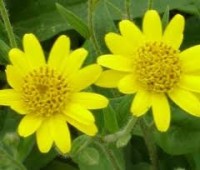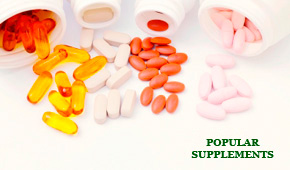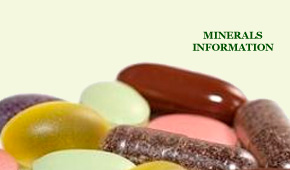ARNICA
 Information
Information
Arnica montana, also known as Wolf's Bane is part of the Compositae plant family. Arnica is a perennial plant that is native to the mountains of Europe and Siberia. It is also cultivated in mountainous areas of Canada and North America.
General Information
Botanical Name: Arnica montana
Common Name: Arnica flowers, Arnica root, Common Arnica, Leopard's Bane, Mountain Arnica, Mountain Tobacco, Wolf's Bane
Plant Family: Compositae
History: Preparations made from the flowering heads have been used in homoeopathic medicine for hundreds of years.
Plant Constituents of Arnica
Contains:
-Arnicin (a bitter yellow crystalline principle)
-Carotenoids
-Flavonoids
-Inulin
-Phulin
-Sesquiterpene lactones (known to reduce inflammation and decrease pain
-Tannin (not in the flower)
-Thymol (an essential oil)
Action:
-Diaphoretic [an agent that promotes perspiration]
-Diuretic [an agent that increases the secretion and expulsion of urine]
-Emollient [an agent used externally to soften and soothe]
-Expectorant [an agent that promotes the discharge of mucous from the respiratory system]
-Stimulant [an agent that excites or quickens the activity of physiological processes]
-Vulnerary [a healing application for wounds]
Usage of Arnica
Medicinal Part used: Fresh or dried flower heads, rootstock (rhizome)
Used extensively by both Europeans and Native North American Indians to:
-heal wounds
-reduce inflammation
-soothe muscle aches
Arnica
-raises blood pressure, especially in the coronary arteries
-has anti-bacterial and anti-inflammatory qualities that can reduce pain and -swelling, improving wound healing
-stimulates blood circulation
Arnica is primarily for external use:
-as a footbath for tender feet
-for abdominal pain (hot compress)
-for arthritis
-for bruises
-for chill blains (if skin is unbroken)
-for irritation from trauma
-for muscle or cartilage pain
-for rheumatism
-for sore or painful joints
-for sprains
-for swellings
and is used as an oil, salve, tincture. Arnica works by:
-dispersing trapped, disorganized fluids from bumped and bruised tissue, joints and muscles
-stimulating the activity of white blood cells that relieve congested blood cells
-washing and cleansing wounds (very diluted
Tincture
Arnica in herbal form is primarily restricted to topical (external) use because it can cause serious side effects when it is used internally. As a general rule Arnica should not be used internally without professional advice but is sometimes used for:
Blood Conditions
-internal bleeding in emergencies
Brain and Nervous System Conditions
-paralytic afflictions
-shock
Arnica is used homeopathically, usually in pillule form, for:
-epilepsy [6x]
-seasickness [3x]
Cardiovascular Conditions
-angina
-cardiac agent
-coronary artery disease
-senile heart
Respiratory Tract Conditions
-inflammation of the mouth and throat as a gargle
Other Conditions
-low fevers
-Arnica Oil
Externally Arnica Oil is extremely beneficial for:
-acne
-bruises
-hair loss if rubbed on scalp (make sure there is no broken skin)
-inflammation from insect bites
-muscle aches
-rheumatic pain
-sprains
-strained or pulled muscles
-superficial phlebitis
-tendon strain
-swelling due to fractures
-wound healing (not on broken skin)
Externally
-The tincture can cause blistering and inflammation when applied so it is important to use very dilute solutions of the tincture
-Arnica should not be used on broken skin, including leg ulcers
-People who are hypersensitive or allergic to the herb should avoid it.
Prolonged use may irritate the skin, causing :
-blisters
-eczema
-peeling
-other skin conditions
Homeopathic preparations are also used to treat:
-bruises
-sore muscles
-conditions associated with overexertion or trauma
-trauma to soft tissues
Arnica is also sometimes used:
-a compress on the stomach to relieve abdominal pains
-as a poultice
Dosage:
Recommended dosage is as follows:
Internal - strictly as prescribed by practitioner or homoeopath
External preparations of Arnica should always be extremely diluted
-Poultices/Compresses - dilute tincture/extract 3-10 times with water
-Oil (infused with vegetable oil)
-Mouthwash - dilute tincture/extract 10 times with water. (Do not swallow)
Precautions
Caution:
The internal use of Arnica is not recommended and should only be administered by a professional herbalist, naturopath or health practitioner.
It can cause:
-dizziness
-heart irregularities
-increased heart rate
-mucous membrane irritation
-nervous disturbances
-stomach irritation
-vomiting
-tremors
-weakness
Do not use if pregnant or breastfeeding
Drug Interactions:
Do not use Arnica without first talking to your practitioner or healthcare provider if you taking any of the following medications:
-None known
[AD]











